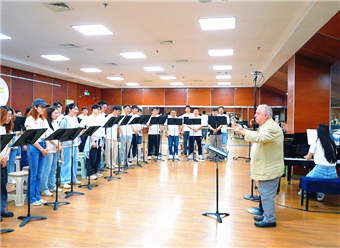Measures to boost judicial reform
The people's court of Taicang in Jiangsu province has made efforts to improve efficiency through several targeted moves, according to a Chinese state media outlet, legaldaily.com.
A panel of senior judges has been formed to study cases that have been open for more than six months and give advice on how to solve them. The move aims to help young judges with their cases because they still relatively lack working experience.
Open cases have been assigned to chief judges based on their ranks and the complexity of the cases. This has resulted in 124 long-standing open cases being resolved since the beginning of 2015.
The lists of unsolved cases are circulated in the court's system as a reminder to the case judges, said Lu Zhiping, a senior judge at the court.
To expedite the pre-trial procedures of civil law and commercial law cases, the court has piloted a conduct code for the judges to follow. The code gives specific instructions on how a judge should handle the examination of case files, evidence authentication and pre-trial mediation.
A public-notice delivery of subpoenas should only be adopted after mail delivery and delivery in person both declared practically impossible, stipulated the court. It also said that a public-notice distributed through media outlets can only become an option when a recipient lives or works outside the jurisdiction of the Taicang court.
From May 4 onwards, China enforced a reformed rule on case-filing. It requires all filed legal cases to be put on records if deemed to have a legal ground to pursue. The move is expected to offer easier access to justice to the public while exacting significant efficiency improvement in local justice bodies.
The Taicang people's court resolved all cases that had been open for more than 12 months in 2014, but new overstock formed after that.
As of June 20, the people's court of Taicang took on 7,580 cases, among which 202 cases remained open for more than six months. Of the 202 cases, two had stayed open for more than 12 months, according to legaldaily.com.
The recurrence of new prolonged cases prompted an overall review on those that had remained open for more than six months. The court then took measures (as mentioned above) based on the outcome of the review.
Zhao Xinhua, president of the Taicang people's court, said that professional incapability still remains in some judges and that there were overdue subpoena deliveries. He also said that low efficiency in forensic processes were among the many obstacles hindering a healthy justice system.
Zhou Qiwei, a senior official appointed to oversee the review, told the press that the subpoena delivery problem is ubiquitous in China due to the recipient's change of residence or change of work place. Zhou also said that because of the situation with the subpoena delivery process, public notices have been used more often than they should be.
In China all civil and criminal law suits have to be tried at county-level court first except for those stipulated otherwise.
As a county-level court, Taicang people's court faces a growing number of cases involving forensics, including certification work on construction projects, asset evaluations and examinations over technical issues in medical malpractice cases.
Feng Ming, head of the forensics office at the court, said the tests involved in the reviewed cases took an average of four to five months to be completed and some took up to nine months.
Feng attributed the reasons for this to forensic institutions being outnumbered with cases and delayed examinations due to insufficient paperwork submitted by the judges in charge of the trials.
New and qualified forensic institutions take time to build but the pilot pre-trial procedures are expected to speed up the forensic process as it helps to shape judges' behaviors.
Edited by Jacob Hooson









